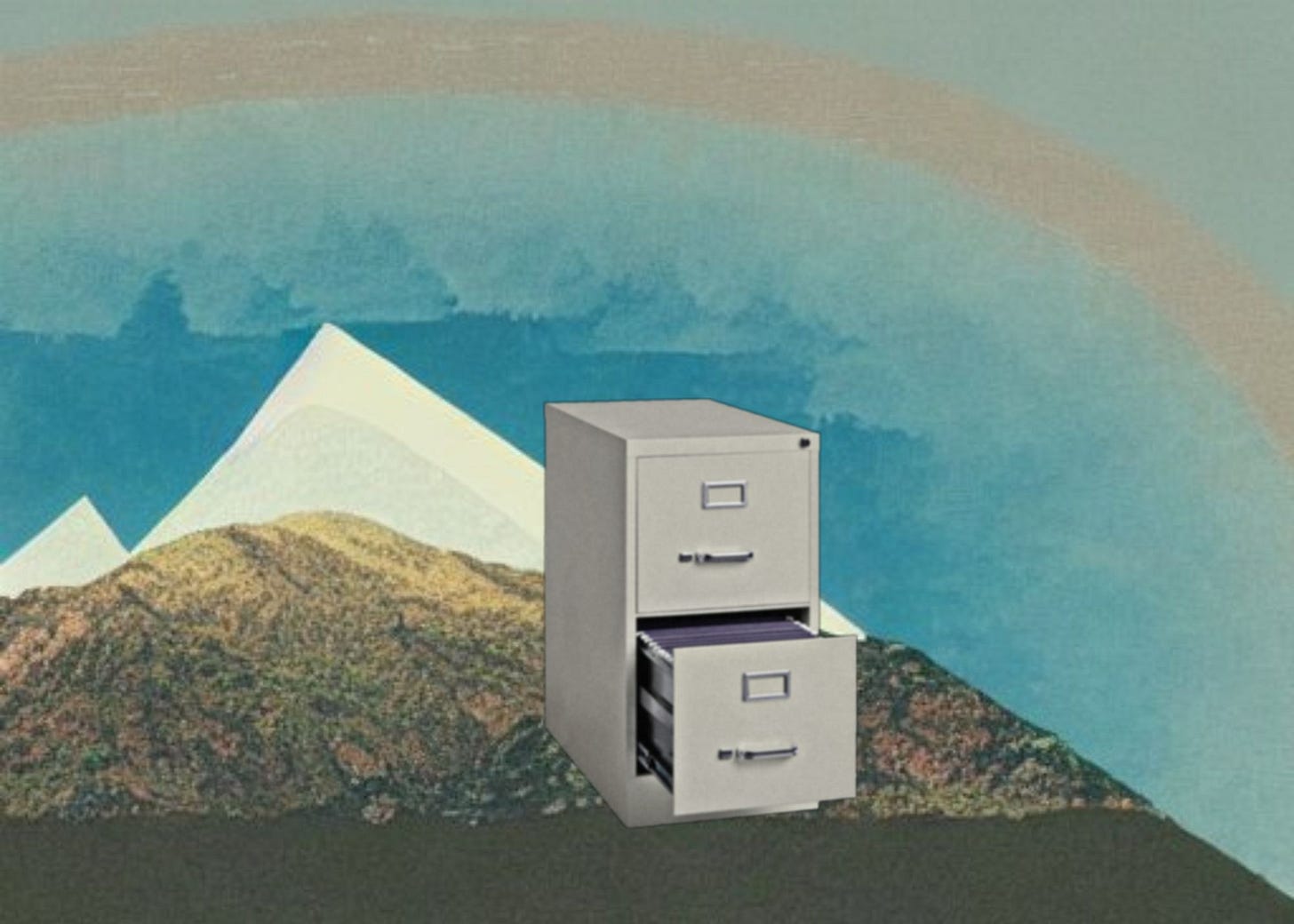The internet is an endless trove of art and culture. It’s easy to think that it’ll be around forever. Young people are often warned, for example, not to put anything scandalous online because “what’s online stays online.” There’s some truth to this. But also there are a million caveats.
Just try to find pictures from your road trip in 2008. They’re out there somewhere, right? But are they on MySpace, Tumblr, or Facebook? Can you even access any of those accounts anymore? Or try to look up that catchy song from your friend’s band in college. Was it posted to Bandcamp or Soundcloud? Why does nothing come up for it in Google?
People delete accounts. Remove content. Lose passwords. Companies go under. Zip drives get lost. Computers crash or get stolen. People die.
Recently, Google announced plans to delete Gmail accounts that haven’t been logged into in over two years. It’s easy to imagine how much content will be forever lost because of this new policy.
Earlier this year, the Internet Archive lost a lawsuit over their practice of scanning books and lending them out like a digital library. The lawsuit, brought by four major publishing houses, is a bad omen for the future of the internet’s primary archival resource. Of course there is the Web Archiving program by the Library of Congress, which won’t ever be sued out of existence. But the Library of Congress isn’t going to help preserve the songs saved years ago in your Google Drive.
Admittedly, everything online doesn’t need to last forever. Things get lost and trashed in the real world, so why wouldn’t they in the digital realm, too? It’s not like the world is really going to miss those old songs you saved to your Google Drive, or those pictures lost in time on Myspace.
The Champions of Digital Preservation
Cultural preservation has never been about saving every last scrap of material generated by creative people. That’s called hoarding. Rather, digital preservation is about thoughtful curation.
Curation, according to Fast Company, is “the act of individuals with a passion for a content area to find, contextualize, and organize information. Curators provide a consistent update regarding what’s interesting, happening, and cool in their focus. Curators tend to have a unique and consistent point of view–providing a reliable context for the content that they discover and organize.”
With millions of photos and countless hours of audio and video uploaded every day, curators are necessary to “help niche content consumers find ‘signal’ in noise.”
The quintessential indie cultural curator on the web is probably Maria Popova of The Marginalian. But she curates mostly offline culture. The folks who curate exclusively online culture are notably less polished, less high-brow. Because to do it right, you have to mine places like 4Chan and Pornhub. Porn, after all, was a driving force behind the development of the internet. And places like 4Chan birthed many of the memes that underlie much of online discourse.
Internet culture curators include everyone from cat moms on Pinterest to popular bloggers and podcasters to academics. Although most people engaged in curation focus on highlighting contemporary content, there are those who dive into the past. Scholarly institutions such as the TikTok Cultures Research Network do a great job of this, although their publications aren’t particularly fun reading. Meanwhile, popular feed-friendly accounts, such as the internet hall of fame on Twitter, don’t provide any narrative.
The ideal approach would be to curate historical content while also providing narrative context. Katherine Dee, the writer and podcaster also known as Default Friend, is one person championing this approach. She’s hard to pin down, but one of her many online projects has been to pioneer the role of internet culture historian. In practice, Katherine spends a lot of time talking about LiveJournal and Tumblr, and how these platforms created widely influential fandoms. For example, in a provocative article “Tumblr Transformed American Politics,” she observes: “Identity as it now defines our discourse found its origins not in the ivory tower but in the realm of online fandom.”
I’d like to see more internet curators playing the role of historian—mining “ancient” internet history for content gems and fitting them together into narratives about broader cultural shifts. I’d also like (personally) to come to grips with the fact that most digital content I create or curate has a shelf life. No internet culture historian, a thousand years from now, is going to ever find, let alone have any use for, the stories I’ve published or the screenplays sitting in my hard drive.
The Joke
Look far enough into the future, and it all vanishes into oblivion—all digital content, along with all physical human artifacts, and even the Anthropocene itself. This is something I actually think about a lot. Of all articles I’ve read online, I most often think back on “The Anthropocene Is a Joke” by Peter Brannen in The Atlantic. “On geological timescales,” Brannen writes, “human civilization is an event, not an epoch.” In this context:
Very little of our handiwork will survive the obliteration of the ages. If 100 million years can easily wear the Himalayas flat, what chance will San Francisco or New York have?
Perhaps 9gag’s much-loathed “Meme Rock” wasn’t such a bad idea after all.


